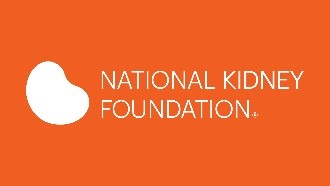How early detection of kidney cancer can help save lives
An oncologist and a patient advocate discuss the challenges of renal cell carcinoma and their hopes for the future of cancer care
March 1, 2023

When Liz Leff, an otherwise healthy woman in her 30s, went in for her annual checkup eight years ago, cancer was the last thing on her mind. But that routine checkup set her on a path with renal cell carcinoma (RCC), the most common type of kidney cancer.
The testing that led to Leff’s early kidney cancer diagnosis

“My primary care physician saw microscopic traces of blood in my urine — which I was told isn’t uncommon — and suggested a follow-up appointment with a urologist,” she said. “I was reluctant to go in for testing for something that seemed insignificant, but my doctor pushed me to have it checked. I’m so glad I did. A renal ultrasound showed a tumor on my kidney.”
The American Cancer Society estimates there will be almost 82,000 new diagnoses of kidney cancer, which includes RCC, in the U.S. in 2023. Renal cell carcinoma occurs when cancerous, or malignant, cells form in tiny tubes in the kidneys, known as tubules. Unlike Leff, a third of all patients aren’t diagnosed until they have advanced disease.
“One of the difficulties around early diagnosis is that unlike breast or cervical cancers, there’s not a preventive care screening test for RCC. Kidney cancer is often found during abdominal imaging tests for other complaints,” said Dr. Rodolfo Perini, an associate vice president who leads the RCC clinical team at Merck Research Laboratories.
Leff’s experience is not typical, as at the time of diagnosis she was young. Additionally, she was not experiencing any symptoms at the time of her diagnosis.
“For most people, common symptoms — like persistent pain in your side or loss of appetite — can be vague and are often brushed off. By the time they become more severe, disease may have spread,” said Dr. Perini. “That’s why it’s so important to listen to your body and share anything you’re experiencing with your doctor. Early detection is associated with better outcomes.”
Kidney cancer causes and care
Risk factors for renal cell carcinoma include smoking, being overweight or obese, having high blood pressure, having a family history, and having a history of exposure to environmental toxins. The risk of kidney cancer may also be greater for Black men and for people over the age of 45.
“The research landscape has changed, and we’ve seen improvements in the care of kidney cancer over the years, but it’s not good enough,” said Dr. Perini.

"We still have work ahead, but with the progress that’s been made, there’s reason to be excited for the future.”
— Dr. Rodolfo Perini
Life as an advocate after experiencing kidney cancer
Leff is also hopeful about the future of care in kidney cancer. Following successful treatment, she joined the National Kidney Foundation, where she draws on her own experiences to better advocate for others living with kidney cancer.
“When I first heard the word ‘cancer,’ I was terrified. I felt like I was in this alone with no place to go. I don’t want others to go through what I went through,” Leff said. “From when I was diagnosed to now, there’s a lot more information and support available.”
“My ultimate hope is that continued research, plus more resources and education for patients, may help lead to earlier diagnoses and better outcomes for more people.”
— Liz Leff
